Application deadline for incoming class of 2024: December 15th, 2023
Prospective student visits (by invitation only): Late Feb 2024
The Department
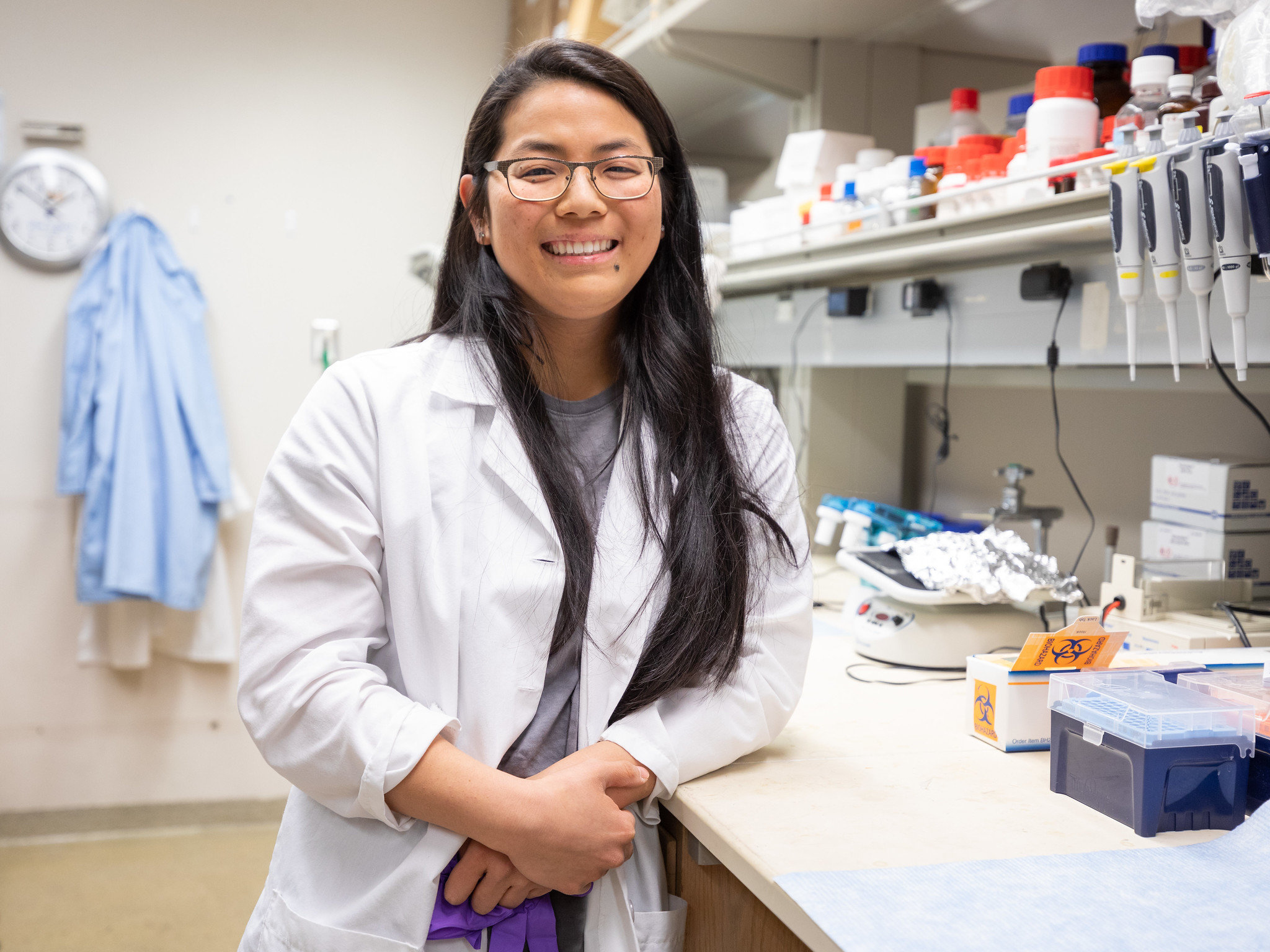 Our research in Medicinal Chemistry encompasses questions related to drug metabolism and disposition, drug design, and disease mechanism. Broadly speaking, we seek to understand how drugs and toxins interact with their biological targets and with detoxifying enzymes and transporters, as well as to uncover the chemical and biochemical bases of cardiovascular, degenerative, developmental and infectious diseases.
Our research in Medicinal Chemistry encompasses questions related to drug metabolism and disposition, drug design, and disease mechanism. Broadly speaking, we seek to understand how drugs and toxins interact with their biological targets and with detoxifying enzymes and transporters, as well as to uncover the chemical and biochemical bases of cardiovascular, degenerative, developmental and infectious diseases.
We have 8 faculty running active research labs tackling health-related problems at the interface of chemistry and biology. Our department is internationally recognized for work on the mechanism and kinetics of xenobiotic metabolism by cytochrome P450s (CYPs) and other detoxification enzymes. CYPs metabolize most drugs used in the clinic, and their dysfunction is linked to harmful drug-drug interactions, inflammation, cancer, heart disease, and impaired neurodevelopment. Recently, our research has diversified into other areas of biochemistry, pharmaceutical chemistry, biophysics and chemical biology. Some faculty study therapeutic antibodies, peptides and other biologics, which are revolutionizing clinical practice. Other faculty study virology with the goal of developing better vaccines and treatments for diseases like HIV/AIDS and influenza, or neurodegeneration with the goal of improving the diagnosis and treatment of dementias like Alzheimer’s disease. Our faculty also develop new analytical techniques, such as mass spectrometry methods to characterize lipids, metabolites and glycoproteins more quickly and sensitively than ever before. Learn more about each lab’s research here.
The PhD Experience
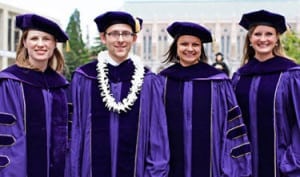 Students in our PhD program work closely with faculty and collaborators in academia and the biotech/pharma industry. Recent graduates have tackled questions ranging from “Is there an early warning signal for heart attacks?” to “Why are viruses so good at evading vaccines?”, and from “How does the body defend against Alzheimer’s disease?” to “How have drug metabolizing enzymes evolved to be so promiscuous?” Students benefit from hands-on access to our state-of-the-art Mass Spectrometry Core, the unparalleled research environment across the UW Seattle campus, and access to NIH-funded pre-doctoral training programs for more focused study in areas such as Pharmacological Sciences and Molecular Biophysics.
Students in our PhD program work closely with faculty and collaborators in academia and the biotech/pharma industry. Recent graduates have tackled questions ranging from “Is there an early warning signal for heart attacks?” to “Why are viruses so good at evading vaccines?”, and from “How does the body defend against Alzheimer’s disease?” to “How have drug metabolizing enzymes evolved to be so promiscuous?” Students benefit from hands-on access to our state-of-the-art Mass Spectrometry Core, the unparalleled research environment across the UW Seattle campus, and access to NIH-funded pre-doctoral training programs for more focused study in areas such as Pharmacological Sciences and Molecular Biophysics.
The department offers a PhD degree with no terminal MS option. In the first year, students typically conduct two to four 10-week rotations in different faculty labs to sample the breadth of research in the department. They then decide on a faculty mentor who will guide their dissertation research.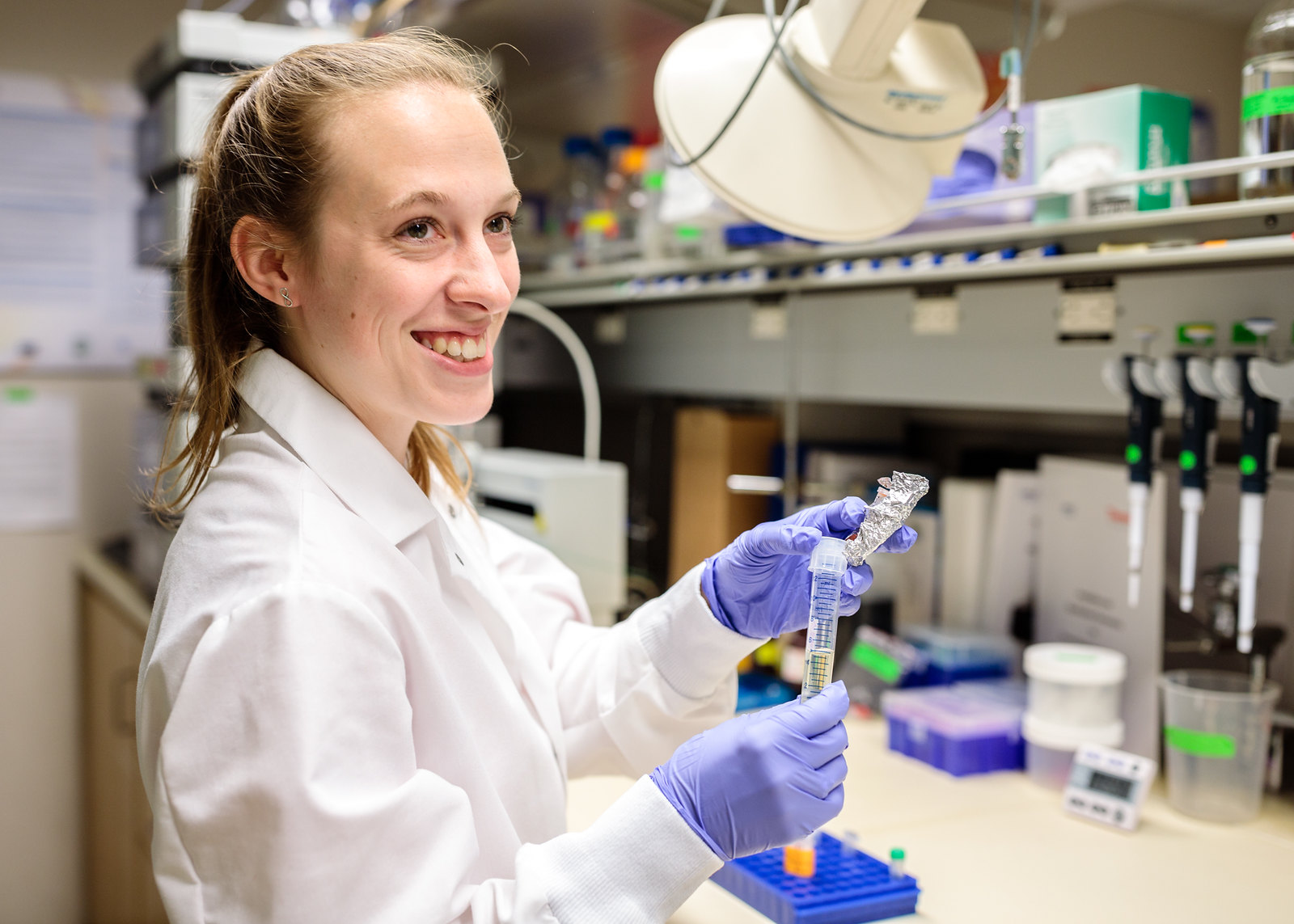
Coursework requires students to become proficient in organic, medicinal and physical chemistry, pharmacology, biochemistry, and molecular biology. (See a typical Program of Study, and course descriptions in the course catalog.) The curriculum is adaptable to individual interests and needs, and most didactic coursework is completed in the first two years. For more information on the program please refer to our most recent Med Chem student handbook.
Professional development outside the laboratory and classroom is a major point of emphasis. Students build communication skills through regular presentations to their labs, and in departmental journal clubs and research seminars. Many students interested in biotech/pharma careers have benefited from our innovative industry mentorship and internship programs.
Financial Support
Incoming graduate students are generally supported by a research assistantship from the department for the first year of study, allowing students to dedicate their time to study and work in the lab. It currently covers tuition (excluding a $265 per quarter student fee) and an additional stipend of $3259/month. In subsequent years, support is provided either by the department or by research or training grants. Outstanding applicants are considered for an ARCS Scholarship that provides an additional stipend of $7,500 for the first year and $5,000 for the next two years of graduate school. The research assistantship also provides health insurance at no charge for students; coverage is available for spouses and dependents for an additional fee. (You can find more information on the Graduate Appointee Insurance Program and other benefits through UW Human Resources.)
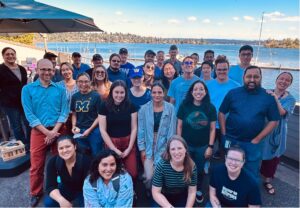 Career Opportunities
Career Opportunities
We position students for success in industry, government (EPA, FDA, NIH) and academia. Our graduates are highly marketable and competitive, and have a strong track record of placement in pharmaceutical and biotechnology companies. Recent alums have joined Amgen, Seattle Genetics and Pfizer, among others. Many have advanced to Director and VP-level positions in the industry, and remain closely involved with our graduate training through their service in our Corporate Advisory Board and industry mentorship program.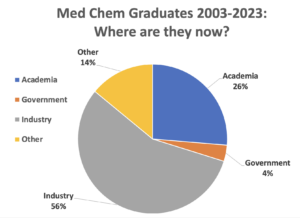
Our graduates also excel in academia. Recent graduates have done post-doctoral work at institutes such as Yale University, University of California San Francisco, University of California San Diego, Lawrence Berkeley National Lab, Queen Mary University of London, and Children’s Hospital Research Center. Subsequently, alums have gone on to tenure-track faculty positions at top-tier research universities, colleges of pharmacy, and liberal arts colleges.